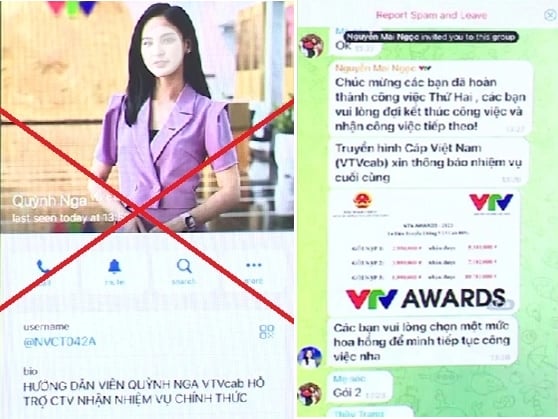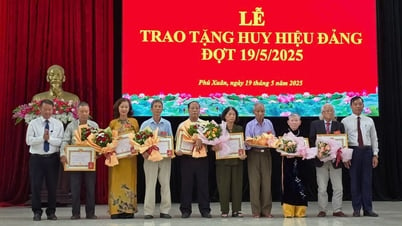The victim received an invitation to become a collaborator for Vietnam Cable Television through a telegram account owner whose name and profile picture were that of a VTV editor. All transactions were via text messages.
The way to make money is that the victim accepts tasks with different levels of remuneration. Before receiving remuneration, they must invest capital. The subjects pay the remuneration and capital in full several times to gain the victim's trust. When the amount of capital invested reaches tens of millions of VND, the victim requests payment, then the subjects cut off contact.

Impersonating VTV editor to scam and recruit TV collaborators.
The task assigned to the victims was to click the Like, Share and Comment buttons on videos on Youtube pages owned by Vietnam Television to increase interaction for these pages. These are all official pages with blue ticks. The subjects chose these pages with the above tasks only to create trust for the victims. In fact, VTV and VTVcab have never recruited collaborators to perform these operations.
The unit also requested the police to intervene, however, tracing the owners of these fraudulent accounts is almost impossible. This is also the reason why the subjects asked the victims to only use the social network Telegram.
In addition to Telegram, scammers are also targeting other applications with servers located abroad as a scam tool. This is also what experts recommend social media users can use to identify similar cases.
According to the victim, in addition to sending individual messages, the subjects also created groups of collaborators with hundreds of members. Among them were so-called "decoys", who often shared their achievements in completing many tasks, receiving commissions of hundreds of millions of dong to create trust for others, and when there were questions or complaints, they would be immediately removed from the group.
Source






![[Photo] Prime Minister Pham Minh Chinh inspects the progress of the National Exhibition and Fair Center project](https://vphoto.vietnam.vn/thumb/1200x675/vietnam/resource/IMAGE/2025/5/19/35189ac8807140d897ad2b7d2583fbae)






















































































![[VIDEO] - Enhancing the value of Quang Nam OCOP products through trade connections](https://vphoto.vietnam.vn/thumb/402x226/vietnam/resource/IMAGE/2025/5/17/5be5b5fff1f14914986fad159097a677)







Comment (0)